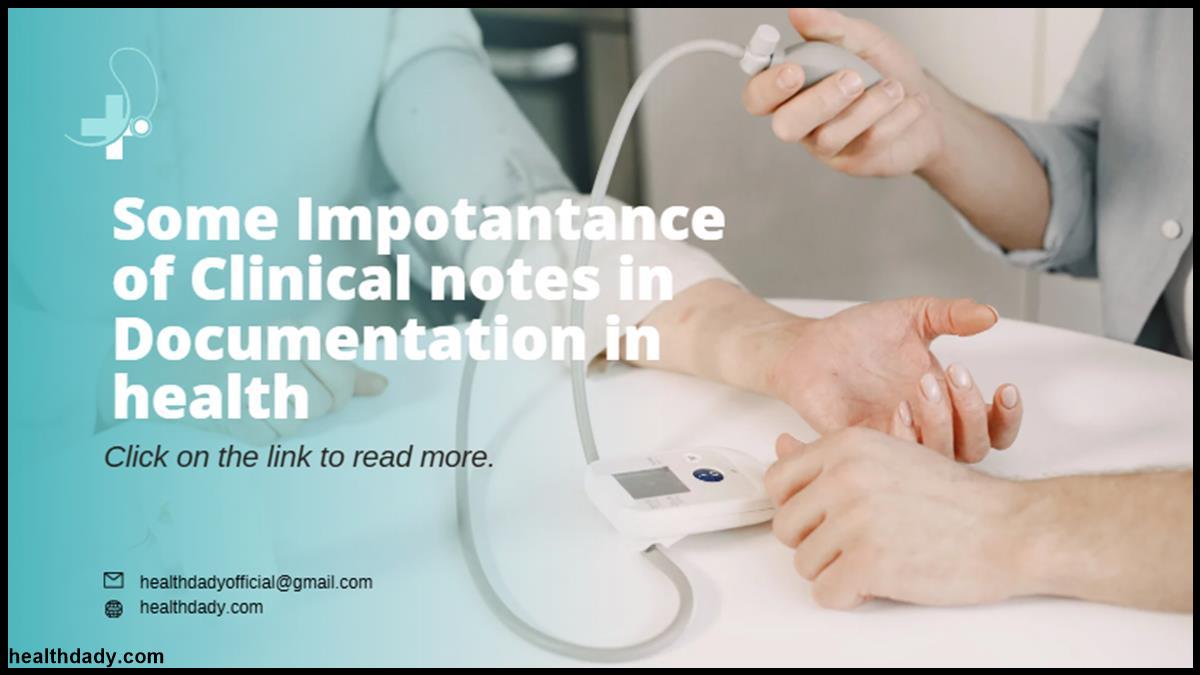Complete clinic notes guarantee that every facet of patient treatment is accurately documented and conveyed, which helps to prevent mistakes.
Table of Contents
Why Clinical Documentation Is Essential in Healthcare?
Maintaining your health is the biggest asset in the modern world. Once you reach your 30s, you should have a regular checkup. Proper clinical documentation is essential to have the right record of your health.
Effective documentation guarantees continuity of treatment, promotes legal and ethical compliance, improves provider communication, and drives healthcare results. Here, let's discuss more about the reasons why clinical documentation is essential in healthcare:
The Importance of Effective Documentation in Healthcare
Clinical documentation aids in gathering the patient's medical history and developing a treatment plan. When you visit the hospital, they will collect your information and create a record. Clinical documentation is essential for physicians, patients, and the healthcare system. It refers to precisely and methodically recording a patient's medical history, treatments, and care plans.
- Improves Patient Engagement and Trust:
Nobody wants to give their provider personal information to enter the patient portal and read the incorrect clinical paperwork. As patients access their health information, clinical documentation becomes a better representation of how well their clinician listens, understands, and respects them.
Proper documentation in healthcare can make or break patient participation and the physician-patient relationship. So, it is essential to maintain an appropriate record of patients.
- Improving the Safety of Patients:
In the healthcare industry patient safety is of the utmost importance, and documentation is essential to ensure its protection. Complete clinic notes guarantee that every facet of patient treatment is accurately documented and conveyed, which helps to prevent mistakes.
This covers the administration of medications, allergies, prior medical interventions, and any other pertinent data that may affect patient safety. The patient's safety depends on accurate recording.
- Reduces Risk and Removes Exposure:
Liability claims against healthcare professionals might still occur years after a patient has received treatment. Nonetheless, there is enough proof to support care and therapy in that instance, together with comprehensive and acceptable clinical documentation.
Clinical documentation reduces exposure to these problems and acts as a safeguard. On the other hand, poor clinical documentation might put physicians at risk for negative exposures, including failed audits and malpractice claims.
- Promoting Care Continuity:
Patients in a complex healthcare system may receive treatment from several locations and providers. Clinical documentation plays a major role in these changes.
Due to the patient's documented medical history, every physician can access consistent and thorough information, regardless of whether the patient is referred to a specialist or admitted to the hospital. This continuity guarantees that all providers agree to provide coherent care and reduces redundancy.
- Promoting Public Health and Research Initiatives:
Clinical documentation provides important information for public health and research. Aggregated patient records can help physicians find disease patterns, assess treatment effectiveness, and offer new therapies.
Public health organizations also use clinical documentation to plan interventions, track epidemics, and track the frequency of chronic diseases. This data-driven strategy improves population health management and fortifies healthcare systems.
- Providing Accurate Billing and Reimbursement:
Clinical documentation is intricately linked to healthcare billing procedures. Insurance companies, Medicare, and Medicaid all demand extensive records to support compensation for services provided.
If documentation is inadequate, claims may be refused, resulting in payment delays. Proper clinic notes ensure that providers are adequately rewarded and patients are given clear explanations about their expenses.
- Encouraging Compliance with Law and Regulation
Legal and regulatory standards for healthcare professionals are very strict. Clinical documentation acts as a legally binding record of the care given, useful for fighting audits or malpractice claims.
Accurate records protect providers by showing accountability and adherence to best practices. Proper documentation guarantees that patient's rights are respected.
Features of Quality Clinical Documentation
The following characteristics contribute to the quality of clinical documentation:
- Clarity: Excellent clinical documentation must be concise enough that no space for ambiguity could alter the interpretation of patient information. On the other hand, misinterpretation can be harmful. Thus, clarity must be sought in every paperwork.
- Precision: Documenting medical records with precision is essential. The care patients receive is highly dependent on precise documentation. Thus, the patient's condition must be accurately reported.
- Consistency: Every medical encounter with patients must be documented at all times. This promotes treatment continuation. The documentation will be defective when an omission indicates a record gap.
- Time: Time is essential in all healthcare processes, especially in clinical documentation. Timely records ensure continuity of care for all providers in the treatment process and provide quality assurance for comprehensive care.
The healthcare system should use all of the criteria listed above to achieve the goals of clinical documentation.
Bottom line:
Clinical documentation is the foundation of providing excellent healthcare. It advances public health and research while ensuring patient safety, continuity of care, legal compliance, financial sustainability, and operational efficiency.
Maintaining accurate, comprehensive, and easily accessible clinical documentation is crucial for delivering high quality care. Its significance will increase as healthcare systems change. Proper healthcare documentation is essential for getting the right treatment.

